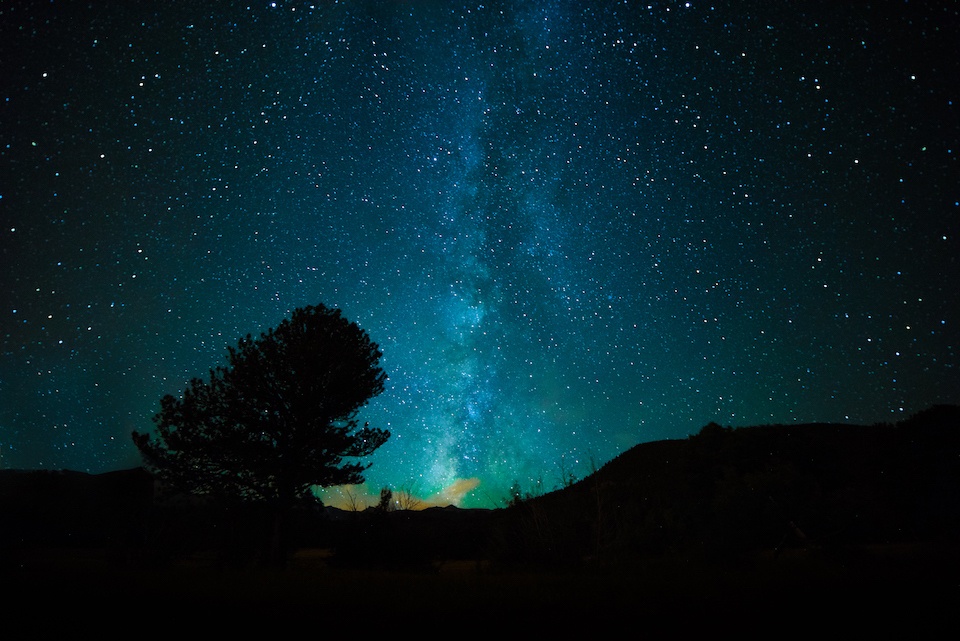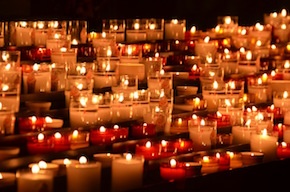Most people, if you ask them, will tell you they aren’t afraid of the dark. And since they probably don’t need night lights to help them feel safe in their beds, they’re telling you the truth. But there’s another kind of darkness that even the bravest adults tend to fear. It’s the darkness that life inevitably delivers. The kind that sets in when we fall on hard times; when the unexpected happens; when our faith is tested; when our hearts break. That kind of darkness can bring even the strongest among us to our knees. So, of course, most of us are inclined to fear it.
But the truth is, no matter how afraid we might be of it, the darkness is guaranteed to come. It’s not only unavoidable in life, it’s necessary—for without it, we could never understand or appreciate the light. As the Tao Te Ching—the ancient Chinese text attributed to Lao Tzu—explains, everything in nature and in life exists in pairs of opposites. Day cannot exist without night; good has no meaning without an understanding of bad; there can be no light if there is no darkness.
It’s perfectly natural to prefer the upside of things and to like it better when everything’s going well. And while it’s also understandable to fear things going wrong, it isn’t necessary to go through life carrying around that kind of fear. First of all, because no matter how much we don’t want it, unfortunate things are bound to happen. That’s the way life goes. Secondly, and more importantly, because it’s in our times of darkness that we’re most likely to learn, to grow, to become more resilient, to gain appreciation and gratitude. Think about it: How much could you possibly learn from life if you were never challenged? How could you gain strength if you were never given a reason to be strong? How could you ever appreciate the good times if that’s all there’s ever been? It’s through the challenges, through the times we spend in darkness, that our resilience is fortified.
Many of the clients I work with seek therapy to address issues pertaining to fear and anxiety. They tell me about their worries and share with me how overwhelmed they feel when thinking about the possibilities that exist for terrible things to happen. Of course, this all makes perfect sense to me, and I let them know so. But once I’ve validated their concerns, I start getting curious about some of the challenges they’ve been through in the past. Most of these clients are able to recall times in their lives when things went terribly wrong. They tell me stories of loss, struggle, and intense emotional pain. They’re able to remember how dark it felt when they were going through those past experiences, and they’re also able to acknowledge that eventually, the darkness passed. The night turned into day again. In remembering that they were able to overcome difficult circumstances and dark times—in most cases, emerging from them wiser, stronger, and more resilient—they’re able to recognize that they can do this again. They come to see that no matter what happens or how dark it gets, it doesn’t last forever; and if they can have the fortitude to get through it, they’ll be better on the other side.
I like to say that our dark times are our greatest teachers. When things are going well, we aren’t available to learn; we’re too busy enjoying ourselves. So instead of being afraid of the dark, what if we embrace it? What if we allow ourselves to live life on life’s terms and accept the inescapability of the dark/light dynamic?
If you’ve been living with fear, I invite you to explore how you might allow yourself to start flowing with life and trusting that all things pass. And if this finds you in a time of darkness, remember that it won’t last forever. Soon—maybe sooner than you know it—there will be light.


